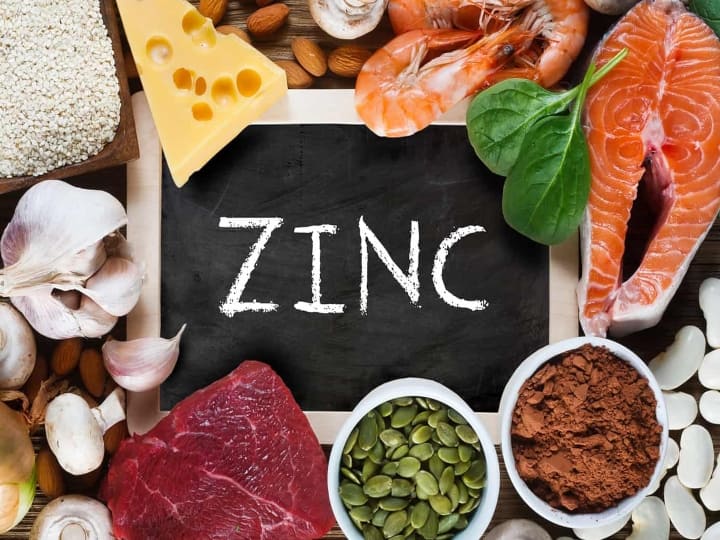Maintaining good health and wellness is essential for men to lead a fulfilling and active life. A balanced diet that includes the right nutrients is crucial for supporting various bodily functions and promoting overall well-being. In this article, we will explore 10 key nutrients that are particularly important for men's health and wellness. Understanding the role of these nutrients and ensuring their adequate intake can help men optimize their health and live their best lives.
Section 1: Protein
Protein is a vital nutrient for men's health and plays a crucial role in various physiological processes. It serves as the building blocks for muscles, contributing to muscle growth, repair, and maintenance. Adequate protein intake is especially important for men who engage in regular physical activity, as it supports muscle recovery and helps prevent muscle loss.
Including lean sources of protein in the diet is essential for meeting daily nutritional needs. Poultry, such as chicken and turkey, is a lean and versatile protein option. Fish, such as salmon and tuna, not only provide protein but also deliver omega-3 fatty acids, which have numerous health benefits for men.
Eggs are an excellent source of protein and contain essential amino acids necessary for muscle protein synthesis. They are also rich in nutrients like vitamin B12 and choline, which support brain health and energy metabolism.
Legumes, including beans, lentils, and chickpeas, are plant-based sources of protein that are high in fiber and low in fat. They provide a wide range of nutrients, including iron, folate, and antioxidants, which contribute to overall health.
To ensure optimal protein intake, men should aim to incorporate a variety of lean protein sources into their diet. This can include lean meats, fish, eggs, dairy products, and plant-based protein sources like legumes and tofu. Consulting with a healthcare professional or registered dietitian can help determine individual protein needs based on factors such as age, weight, and activity level.
It's important to note that while protein is essential, it should be consumed as part of a balanced diet that includes a variety of other nutrients. Focusing on whole, nutrient-dense foods and maintaining a well-rounded eating pattern will contribute to overall health and well-being.

Section 2: Omega-3 Fatty Acids
Omega-3 fatty acids are a group of essential fats that play a critical role in men's health and wellness. These fats cannot be produced by the body and must be obtained through dietary sources. Omega-3s, particularly eicosapentaenoic acid (EPA) and docosahexaenoic acid (DHA), offer numerous benefits for men's overall well-being.
One of the primary advantages of omega-3 fatty acids is their positive impact on heart health. Research has shown that omega-3s can help reduce the risk of heart disease by lowering triglyceride levels, reducing blood pressure, and preventing the formation of blood clots. Including fatty fish like salmon, trout, and sardines in the diet is an excellent way to obtain these beneficial fats.
In addition to heart health, omega-3 fatty acids also have anti-inflammatory properties. They help reduce inflammation in the body, which is linked to various chronic conditions, including arthritis, inflammatory bowel disease, and certain types of cancer. Consuming foods rich in omega-3s, such as walnuts, flaxseeds, and chia seeds, can help combat inflammation and promote overall wellness.
Omega-3 fatty acids are also essential for brain health and cognitive function. DHA, in particular, is a major component of brain tissue and plays a crucial role in supporting brain development and function throughout life. Studies suggest that omega-3s may help improve memory, cognitive performance, and mood. Including omega-3-rich foods or considering fish oil supplements can support brain health in men of all ages.
To ensure an adequate intake of omega-3 fatty acids, it is recommended to include fatty fish in the diet at least twice a week. For individuals who don't consume fish, plant-based sources like walnuts, flaxseeds, and chia seeds are excellent alternatives. Additionally, omega-3 supplements, such as fish oil capsules, can be considered under the guidance of a healthcare professional.
As with any dietary component, moderation is key. While omega-3 fatty acids offer numerous health benefits, it is important to balance their intake with a well-rounded diet and lifestyle that includes other essential nutrients. By incorporating omega-3-rich foods into the diet, men can support heart health, reduce inflammation, and promote optimal brain function for overall wellness.

Section 3: Vitamin D
Vitamin D is a crucial nutrient that plays a significant role in men's health and wellness. It is well-known for its importance in supporting bone health, as it aids in the absorption of calcium and phosphorus, essential minerals for strong and healthy bones. Sufficient vitamin D levels contribute to bone mineralization and help prevent conditions like osteoporosis and fractures.
Beyond its role in bone health, vitamin D also plays a crucial role in immune function. It helps regulate the immune system, enabling it to effectively fight off infections and diseases. Adequate vitamin D levels have been associated with a reduced risk of respiratory infections, including colds and flu. It also plays a role in modulating inflammatory responses and may contribute to a lower risk of autoimmune disorders.
In addition to bone health and immune function, vitamin D is involved in hormone regulation, including the production of testosterone. Testosterone is a vital hormone for men as it influences muscle strength, libido, and overall well-being. Ensuring sufficient vitamin D levels may help support healthy testosterone levels and promote optimal hormonal balance.
While sunlight is a natural source of vitamin D, it can be challenging to obtain adequate amounts, especially in regions with limited sunlight or during the winter months. Additionally, factors such as skin pigmentation, age, and the use of sunscreen can affect the body's ability to produce vitamin D from sunlight. Therefore, it is essential to consider alternative sources of vitamin D.
Foods fortified with vitamin D, such as milk, orange juice, and breakfast cereals, can help increase vitamin D intake. Fatty fish like salmon and mackerel, egg yolks, and fortified dairy products also contain natural sources of vitamin D. However, it can be challenging to obtain sufficient levels through diet alone.
Supplementation is often recommended to ensure adequate vitamin D levels, especially for individuals who are at risk of deficiency or have limited sun exposure. It is important to consult with a healthcare professional to determine the appropriate dosage for supplementation based on individual needs and to monitor vitamin D levels through blood tests.
In conclusion, vitamin D is a vital nutrient for men's health and wellness. It plays a crucial role in supporting bone health, immune function, and hormone regulation. While sunlight is the primary source, obtaining sufficient vitamin D levels may require a combination of sun exposure, dietary intake, and supplementation. Ensuring optimal vitamin D levels can contribute to overall well-being and reduce the risk of various health conditions.

Section 4: Magnesium
Magnesium is an essential mineral that is involved in numerous biochemical reactions in the body, making it a vital nutrient for men's health and wellness. It plays a crucial role in various physiological processes, including muscle function, nerve transmission, energy metabolism, and protein synthesis.
One of the primary functions of magnesium is its involvement in muscle function. It helps regulate muscle contractions and relaxation, making it crucial for normal muscle function, including the contraction of the heart muscle. Adequate magnesium levels support optimal muscle performance, allowing for better physical performance and reducing the risk of muscle cramps and spasms.
Furthermore, magnesium plays a role in nerve transmission, contributing to the proper functioning of the nervous system. It aids in the transmission of nerve impulses, supporting optimal cognitive function, memory, and overall brain health.
Another important role of magnesium is its involvement in energy metabolism. It plays a key role in the production and utilization of adenosine triphosphate (ATP), the energy currency of the body. Magnesium is required for the activation of enzymes involved in ATP synthesis, making it essential for efficient energy production.
Dietary sources of magnesium include leafy green vegetables such as spinach and kale, nuts and seeds like almonds and pumpkin seeds, whole grains, legumes, and certain types of fish. Including these foods in the diet can help ensure sufficient magnesium intake.
However, it can be challenging to meet the recommended daily intake of magnesium through diet alone. Factors such as soil depletion and food processing may contribute to lower magnesium levels in foods. Therefore, supplementation may be necessary to maintain optimal magnesium levels, especially for individuals with inadequate dietary intake or specific health conditions.
Supplementing with magnesium can help fill any nutritional gaps and ensure sufficient intake for overall health and wellness. There are various forms of magnesium supplements available, including magnesium citrate, magnesium glycinate, and magnesium oxide. Consulting with a healthcare professional can help determine the most appropriate form and dosage based on individual needs.
In conclusion, magnesium is a vital mineral that plays a significant role in men's health and wellness. It is involved in muscle function, nerve transmission, and energy metabolism. While it can be obtained from dietary sources, supplementation may be necessary to meet recommended levels. Ensuring adequate magnesium intake supports optimal physical performance, cognitive function, and overall well-being.

Section 5: Zinc
Zinc is an essential mineral that plays a crucial role in supporting men's health and wellness. It is involved in various physiological processes, including immune function, hormone production, and reproductive health.
One of the primary roles of zinc is its contribution to a healthy immune system. It is involved in the development and function of immune cells, including white blood cells that help defend the body against infections and illnesses. Adequate zinc levels support optimal immune function, helping to maintain a robust immune response and reduce the risk of infections.
Zinc also plays a vital role in hormone production and regulation, particularly in men. It is involved in the synthesis and release of testosterone, the primary male sex hormone. Testosterone is essential for maintaining reproductive health, promoting muscle growth and strength, regulating libido, and supporting overall well-being. Sufficient zinc levels are necessary to support healthy testosterone levels, ensuring proper reproductive function and vitality.
Additionally, zinc is important for maintaining reproductive health in men. It is involved in the production of sperm and helps maintain healthy prostate function. Zinc deficiency has been associated with reduced sperm quality and fertility issues in men. Ensuring sufficient zinc intake is crucial for supporting optimal reproductive health and fertility.
Good dietary sources of zinc include oysters, lean meats (such as beef and poultry), legumes (such as chickpeas and lentils), pumpkin seeds, and whole grains. Including these foods in the diet can help ensure an adequate intake of zinc.
However, it's worth noting that certain factors may affect zinc absorption and increase the risk of deficiency. These factors include gastrointestinal disorders, vegetarian or vegan diets, alcohol consumption, and certain medications. In such cases, zinc supplementation may be necessary to maintain optimal zinc levels.
When considering zinc supplementation, it is important to consult with a healthcare professional to determine the appropriate dosage and form of zinc supplement. Zinc supplements are available in various forms, including zinc gluconate, zinc citrate, and zinc picolinate.
In conclusion, zinc is a vital mineral for men's health and wellness. It supports immune function, hormone production, and reproductive health. Adequate zinc intake can be achieved through a balanced diet that includes zinc-rich foods. However, supplementation may be necessary in certain situations to ensure optimal zinc levels. By prioritizing sufficient zinc intake, men can support their immune system, hormone balance, and overall well-being.

Section 6: Vitamin C
Vitamin C, also known as ascorbic acid, is a water-soluble vitamin that plays a crucial role in supporting men's health and wellness. It is well-known for its immune-boosting properties and antioxidant effects.
One of the key functions of vitamin C is its role in supporting immune function. It enhances the production and function of white blood cells, which are essential for fighting off infections and maintaining a healthy immune system. Adequate vitamin C intake can help reduce the duration and severity of common colds and other respiratory infections.
Vitamin C is also a powerful antioxidant that helps protect cells from damage caused by harmful molecules called free radicals. By neutralizing free radicals, vitamin C helps reduce oxidative stress and inflammation in the body, which are associated with various chronic diseases, including heart disease, cancer, and aging-related conditions.
Collagen synthesis is another important function of vitamin C. Collagen is a protein that provides structure and strength to tissues, such as skin, bones, and blood vessels. Vitamin C is essential for the production of collagen, promoting healthy skin, wound healing, and maintaining the integrity of blood vessels and bones.
Dietary sources rich in vitamin C include citrus fruits (such as oranges, lemons, and grapefruits), berries (such as strawberries and blueberries), kiwi, tomatoes, peppers, and leafy green vegetables (such as spinach and kale). Including these foods in the diet ensures an adequate intake of vitamin C.
While it is ideal to obtain vitamin C from whole foods, supplementation may be necessary in certain situations, such as when dietary intake is insufficient or during periods of increased need, such as illness or stress. Vitamin C supplements are available in various forms, including tablets, capsules, and powders.
It is important to note that excessive intake of vitamin C through supplementation may have potential side effects, such as digestive issues or diarrhea. Therefore, it is recommended to consult with a healthcare professional to determine the appropriate dosage and form of vitamin C supplement based on individual needs.
In conclusion, vitamin C is a vital nutrient for men's health and wellness. It supports immune function, acts as an antioxidant, and aids in collagen synthesis. Including vitamin C-rich foods in the diet and considering supplementation when necessary can help men maintain optimal health and well-being.

Section 7: B Vitamins
B vitamins are a group of water-soluble vitamins that are essential for various aspects of men's health and wellness. The group includes vitamins B1 (thiamine), B2 (riboflavin), B3 (niacin), B5 (pantothenic acid), B6 (pyridoxine), B7 (biotin), B9 (folate), and B12 (cobalamin). These vitamins play a crucial role in energy metabolism, brain function, and the production of red blood cells.
One of the key functions of B vitamins is their involvement in energy metabolism. They help convert the food we eat into energy that the body can use. B vitamins work together to metabolize carbohydrates, proteins, and fats, providing the body with the energy it needs to carry out various functions and activities. Adequate intake of B vitamins supports optimal energy levels and helps combat fatigue and tiredness.
B vitamins are also essential for brain health and function. They contribute to the production of neurotransmitters, which are chemical messengers that allow communication between brain cells. These neurotransmitters play a vital role in mood regulation, cognitive function, and overall mental well-being. Adequate levels of B vitamins, particularly B6, B9 (folate), and B12, are crucial for maintaining proper brain function and reducing the risk of age-related cognitive decline.
Furthermore, B vitamins are involved in the production of red blood cells, which are responsible for carrying oxygen throughout the body. Vitamin B12, in particular, plays a key role in the formation of red blood cells and the maintenance of a healthy nervous system. Insufficient levels of B12 can lead to a type of anemia called megaloblastic anemia, which can cause fatigue, weakness, and other symptoms.
Good dietary sources of B vitamins include lean meats, fish, eggs, legumes, whole grains, nuts, seeds, and leafy green vegetables. Including these foods in the diet ensures an adequate intake of B vitamins. However, certain factors such as poor dietary choices, certain medical conditions, and age-related changes may increase the need for B vitamin supplementation.
It is important to note that B vitamins work synergistically, and an imbalance in one B vitamin can affect the functioning of others. Therefore, it is recommended to consume a balanced diet that includes a variety of B vitamin-rich foods. In some cases, healthcare professionals may recommend B vitamin supplements to address specific deficiencies or meet increased needs.
In conclusion, B vitamins are essential for men's health and wellness. They play a vital role in energy metabolism, brain function, and the production of red blood cells. Ensuring an adequate intake of B vitamins through a balanced diet or supplementation when necessary can support optimal health and well-being.

Section 8: Calcium
Calcium is a mineral that is essential for men's health and wellness, particularly for maintaining strong bones and teeth. It plays a crucial role in bone formation, supporting optimal bone density and strength throughout life. In addition to its role in bone health, calcium is also involved in muscle function, nerve transmission, and blood clotting.
Getting sufficient calcium is important for preventing osteoporosis, a condition characterized by weak and brittle bones that are more prone to fractures. Men, like women, can also experience age-related bone loss, making calcium intake crucial for maintaining healthy bones as they get older.
Good dietary sources of calcium include dairy products such as milk, yogurt, and cheese. However, if you follow a plant-based or lactose-free diet, there are also calcium-fortified plant-based milk alternatives available. Additionally, leafy green vegetables like kale, broccoli, and spinach contain significant amounts of calcium. Incorporating these foods into your diet can help ensure adequate calcium intake.
It's worth noting that the body's ability to absorb calcium can be influenced by other factors, such as vitamin D levels, age, and certain medical conditions. Vitamin D, for instance, is essential for calcium absorption and utilization in the body. Therefore, it's important to ensure sufficient vitamin D intake through sun exposure, fortified foods, or supplementation, especially in regions with limited sunlight.
While it's ideal to obtain calcium through a well-balanced diet, sometimes dietary intake alone may not meet the recommended daily intake. In such cases, calcium supplements may be considered under the guidance of healthcare professionals. It's important to note that excessive calcium intake from supplements can have negative health effects, so it's crucial to follow recommended dosage guidelines.
In conclusion, calcium is a vital nutrient for men's health and wellness. It plays a key role in bone health, muscle function, and nerve transmission. Including calcium-rich foods in the diet, such as dairy products, fortified plant-based milk alternatives, and leafy greens, can help ensure adequate calcium intake. Consult with healthcare professionals for personalized recommendations on calcium intake and supplementation to support optimal health.

Section 9: Selenium
Selenium is a trace mineral that plays a critical role in men's health and wellness. It functions as an antioxidant, helping to protect cells from oxidative damage caused by harmful free radicals. Selenium is also essential for proper thyroid function and supports a healthy immune system.
Including selenium-rich foods in your diet is important for maintaining optimal selenium levels. Brazil nuts are one of the best dietary sources of selenium, with just a few nuts providing the recommended daily intake. Seafood, such as tuna, salmon, and shrimp, is also a good source of selenium. Other food sources include whole grains, eggs, poultry, and mushrooms.
The health benefits of selenium are mainly attributed to its antioxidant properties. As an antioxidant, selenium works alongside other antioxidants in the body, such as vitamin E, to neutralize harmful free radicals and protect cells from oxidative stress. This oxidative stress can lead to chronic inflammation and contribute to various diseases.
Selenium's role in supporting a healthy immune system is also significant. It helps regulate immune responses and enhances the activity of immune cells, which can help fight off infections and reduce the risk of chronic diseases.
While selenium is important for overall health, it's worth noting that excessive selenium intake can have adverse effects. It's recommended to obtain selenium through a varied diet rather than relying solely on supplements unless specifically advised by a healthcare professional.
In conclusion, selenium is a vital nutrient for men's health and wellness. It acts as an antioxidant, supports immune function, and helps protect cells from oxidative damage. Including selenium-rich foods in your diet, such as Brazil nuts, seafood, and whole grains, can help ensure sufficient selenium intake. As with any nutrient, it's important to maintain a balanced approach and consult with healthcare professionals for personalized recommendations.

Section 10: Fiber
Fiber is a crucial nutrient for men's health and wellness, with numerous benefits for overall well-being. It plays a vital role in maintaining digestive health, preventing constipation, and supporting heart health.
There are two types of dietary fiber: soluble fiber and insoluble fiber. Soluble fiber dissolves in water and forms a gel-like substance in the digestive tract, while insoluble fiber adds bulk to the stool and helps promote regular bowel movements.
A diet rich in fiber has several benefits for digestive health. Fiber helps prevent constipation by adding bulk to the stool and promoting regularity. It also supports the growth of beneficial bacteria in the gut, which contributes to a healthy gut microbiome. A healthy gut microbiome is associated with improved digestion, nutrient absorption, and a strengthened immune system.
In addition to its digestive benefits, fiber also plays a significant role in supporting heart health. Soluble fiber helps lower cholesterol levels by reducing the absorption of cholesterol from the diet. It can also help regulate blood sugar levels by slowing down the digestion and absorption of carbohydrates, which is beneficial for individuals with diabetes or those at risk of developing diabetes.
Including fiber-rich foods in your daily diet is essential for meeting your fiber needs. Whole grains, such as whole wheat, oats, and brown rice, are excellent sources of fiber. Fruits and vegetables, particularly those with edible skins or seeds, such as apples, berries, broccoli, and peas, are also rich in fiber. Legumes, including beans, lentils, and chickpeas, are another great source of dietary fiber.
It's important to gradually increase your fiber intake and drink plenty of water to prevent digestive discomfort. Aim for a varied and balanced diet that includes a variety of fiber-rich foods to ensure you're getting an adequate amount of both soluble and insoluble fiber.
In conclusion, fiber is a vital nutrient for men's health and wellness. It supports digestive health, prevents constipation, and promotes heart health. Including fiber-rich foods, such as whole grains, fruits, vegetables, and legumes, in your daily diet is key to reaping the benefits of fiber and maintaining optimal health.

Conclusion:
Maintaining good health and wellness is a top priority for men, and a well-rounded diet that includes essential nutrients is a key aspect of achieving that goal. The 10 key nutrients discussed in this article, including protein, omega-3 fatty acids, vitamins, minerals, fiber, and more, are vital for supporting various bodily functions and promoting overall well-being.
Protein is essential for muscle growth and repair, while omega-3 fatty acids support heart health and brain function. Vitamins and minerals, such as vitamin D, magnesium, zinc, vitamin C, B vitamins, calcium, selenium, and fiber, each have their unique roles in maintaining optimal health.
By incorporating a variety of nutrient-rich foods into their diet, men can ensure they are obtaining these key nutrients. Lean sources of protein, fatty fish, fruits, vegetables, whole grains, nuts, seeds, and legumes should all have a place in a balanced and diverse diet.
In addition to a healthy diet, regular physical activity, sufficient sleep, stress management, and avoiding harmful habits like smoking and excessive alcohol consumption are also crucial for men's health and wellness.
It is important for men to prioritize their health and take proactive steps to optimize their well-being. Consulting with healthcare professionals or registered dietitians can provide personalized guidance and ensure individual nutritional needs are met.
By embracing a holistic approach to health, men can enhance their quality of life, increase their energy levels, support their immune system, and reduce the risk of chronic diseases. Remember, small changes in dietary choices and lifestyle habits can have a significant impact on long-term health outcomes.
In conclusion, incorporating the 10 key nutrients discussed in this article, along with other healthy habits, can help men maintain optimal health and wellness. By nourishing their bodies with a variety of nutrient-rich foods and making lifestyle choices that support their well-being, men can enjoy a happier, more fulfilling, and vibrant life.






